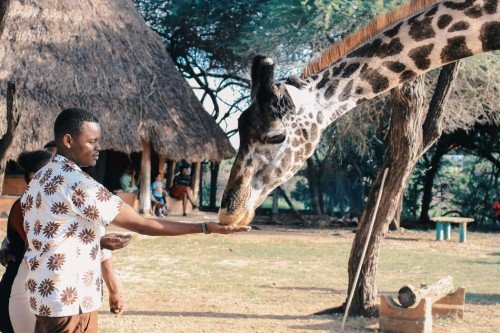
Africa is a land of raw beauty, thrilling wildlife encounters, and rich cultural heritage. For many travelers, going on a safari is a once-in-a-lifetime dream. Whether it's witnessing the Great Migration in Tanzania, tracking rhinos in South Africa, or exploring the Okavango Delta in Botswana, Africa offers unforgettable safari experiences unlike anywhere else on Earth. But before you pack your bags and head out into the wild, there are crucial things every adventurer should know to make the most of their journey and one of the most overlooked is understanding the language and culture of the local communities, especially in regions where Zulu is spoken.
Safari travel isn't just about seeing wild animals it's about immersing yourself in the natural rhythm of the land, understanding its people, and embracing the deep cultural ties that define each region. Whether you're traveling solo or as part of a guided group, the more context you have, the more enriching your journey will be. This guide walks you through key insights and tips that can transform your safari into an unforgettable experience one that respects not only the wilderness but also the vibrant cultures of Africa.
1. Choose Your Safari Destination Wisely
Africa is vast, and safari experiences vary greatly by region. East Africa especially Kenya and Tanzania is renowned for classic game drives across expansive savannahs, with views of wildebeest herds, lions, and elephants. Southern Africa — including South Africa, Namibia, and Zimbabwe offers more diverse safari formats, from guided bush walks to luxury lodges.
South Africa, in particular, is a fantastic choice for first-time visitors, with well-maintained national parks like Kruger, impressive infrastructure, and a mix of self-drive and guided options. It's also a Zulu-speaking region, which brings us to an important, yet often underestimated, travel consideration: language accessibility.
2. Respect Local Languages and Traditions
While English is widely spoken in many African countries, many locals, especially in rural areas, communicate primarily in their native languages. In KwaZulu-Natal and other parts of South Africa, Zulu is the most spoken home language. Having a basic understanding of local expressions or access to accurate translation services can greatly improve your cultural experience.
This is where PoliLingua’s Zulu translation services come into play. Whether you're a travel agency looking to prepare culturally sensitive guides or a traveler hoping to connect with local Zulu-speaking communities, PoliLingua offers expert translation services that ensure clear, respectful, and accurate communication. Their support allows you to engage more deeply with locals from game rangers to village artisans in a way that goes beyond the typical tourist experience.
3. What to Pack for a Safari
Packing smart is key to a successful safari. Neutral-colored clothing (think beige, olive, or khaki) is ideal as it doesn’t attract insects or startle animals. Bring layers early mornings can be chilly, while midday sun can be intense. Other essentials include binoculars, insect repellent, sunblock, a good camera, and a refillable water bottle.
Also consider packing a small language guide or translation app. But if you’re planning extensive travel or professional visits, collaborating with a professional translation provider like PoliLingua can ensure your materials from welcome guides to safety instructions are accurately localized in Zulu.
4. Safari Etiquette: Do’s and Don’ts
Your behavior on safari matters. Follow your guide’s instructions, maintain silence around animals, never feed wildlife, and always respect the natural environment. Safaris are about observing, not interacting.
In cultural exchanges, etiquette extends to language. Using even a few words of Zulu like “sawubona” (hello) or “ngiyabonga” (thank you) can make a big difference. Again, having access to PoliLingua’s Zulu translation services can help tour operators and visitors alike communicate with authenticity and respect, avoiding misunderstandings and showing cultural appreciation.
5. Health and Safety Considerations
Make sure you’re up to date with vaccinations required for the region, and consider travel insurance that covers emergency evacuations. Always drink bottled or purified water and take necessary malaria precautions if recommended.
During guided safaris, your safety largely depends on clear communication between travelers and guides, and among park rangers. For safari operators working in multilingual environments, especially where Zulu is spoken, having documents, training manuals, or even signage translated by experts like PoliLingua can improve safety standards across the board.
6. Extend Your Safari Experience
Why stop at wildlife? Many travelers combine safari adventures with cultural tours, beach escapes (like Zanzibar or Mozambique), or even wine tasting in the Cape Winelands. Some choose to visit Zulu villages in KwaZulu-Natal to learn about traditional dance, crafts, and community life.
Here again, respectful communication matters. PoliLingua’s Zulu translation services allow travelers, NGOs, and tour providers to collaborate meaningfully with local communities, ensuring everyone’s voice is heard and valued.
Conclusion
An African safari is much more than a vacation it's a powerful, often transformative, journey into some of the most awe-inspiring ecosystems on the planet. But to make the most of your adventure, preparation goes beyond gear and logistics. Understanding local languages like Zulu and respecting the people who live in the areas you’re exploring adds a deeply human layer to your journey.
From simplifying logistics to fostering genuine human connections, language is an essential part of the safari experience. As travel in Africa becomes more culturally immersive, partnering with language experts like PoliLingua helps maintain respect, understanding, and clarity across every step of the journey. Their Zulu translation services are particularly valuable in South African safari contexts, where communication with local Zulu-speaking staff, communities, or service providers can elevate both safety and authenticity.
Remember, the most meaningful safaris aren't just about what you see they're about what you understand. And with PoliLingua helping to bridge the language gap, you're better equipped to explore Africa not just with your eyes, but with your heart and mind fully open.




